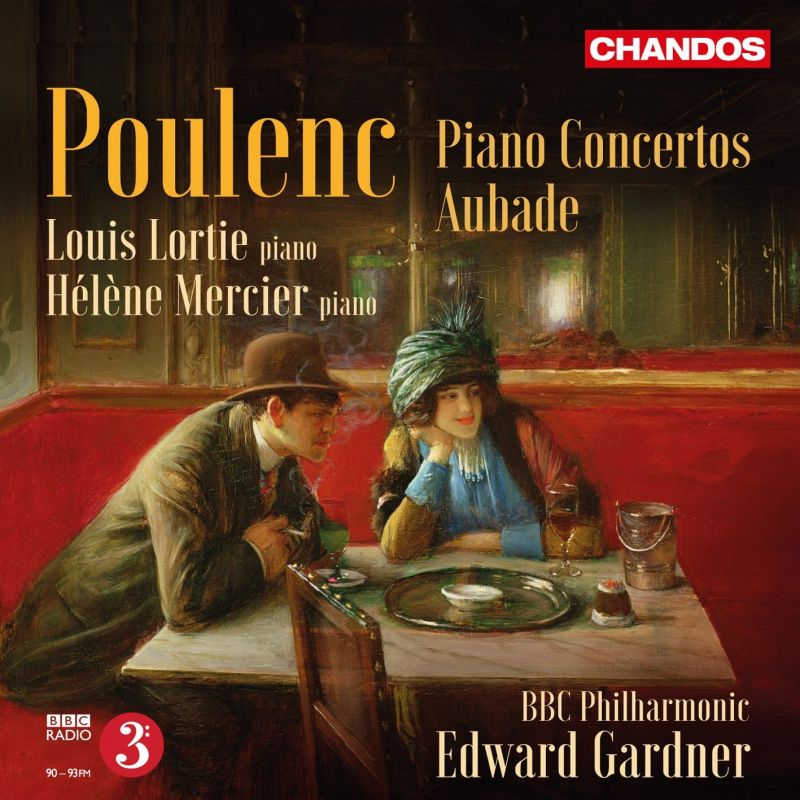POULENC Piano Concerto. Concerto for 2 Pianos
View record and artist detailsRecord and Artist Details
Composer or Director: Francis Poulenc
Genre:
Orchestral
Label: Chandos
Magazine Review Date: 10/2015
Media Format: CD or Download
Media Runtime: 73
Mastering:
DDD
Catalogue Number: CHAN10875

Tracks:
| Composition | Artist Credit |
|---|---|
| Concerto for Piano and Orchestra |
Francis Poulenc, Composer
BBC Philharmonic Orchestra Edward Gardner, Conductor Francis Poulenc, Composer Louis Lortie, Piano |
| Aubade |
Francis Poulenc, Composer
BBC Philharmonic Orchestra Edward Gardner, Conductor Francis Poulenc, Composer Louis Lortie, Piano |
| Concerto for Two Pianos and Orchestra |
Francis Poulenc, Composer
BBC Philharmonic Orchestra Edward Gardner, Conductor Francis Poulenc, Composer Hélène Mercier, Piano Louis Lortie, Piano |
| Sonata for Piano Duet |
Francis Poulenc, Composer
Francis Poulenc, Composer Hélène Mercier, Piano Louis Lortie, Piano |
| Elégie |
Francis Poulenc, Composer
Francis Poulenc, Composer Hélène Mercier, Piano Louis Lortie, Piano |
| (L') Embarquement pour Cythère |
Francis Poulenc, Composer
Francis Poulenc, Composer Hélène Mercier, Piano Louis Lortie, Piano |
Author: Geoffrey Norris
That is true of the outer movements, at any rate: in the central one, Poulenc’s romantically tinged melody is done with discretion, so that it comes across with a genuine warmth rather than any sense of irony. The more overtly dramatic passages make their points, and the shifts of mood and sonority are seamlessly made. The earlier concerto choréographique, Aubade (1929) for piano and 18 instruments and the D minor Concerto for two pianos (1932) both catch Poulenc in less riotous mood, more piquant in his use of instrumental timbres, less keen merely to please as he is in the later Concerto.
Lortie is joined by Hélène Mercier for cracking performances of the Two-Piano Concerto and the Sonata for four hands (1918, revised 1939), their distinctive acerbities given whiplash emphasis by both pianists (and by the orchestra in the concerto) and yet with their more lyrical leanings tenderly voiced. There are valuable interpretative insights here for even the most seasoned of Poulenc aficionados.
Discover the world's largest classical music catalogue with Presto Music.

Gramophone Digital Club
- Digital Edition
- Digital Archive
- Reviews Database
- Full website access
From £8.75 / month
Subscribe
Gramophone Full Club
- Print Edition
- Digital Edition
- Digital Archive
- Reviews Database
- Full website access
From £11.00 / month
Subscribe
If you are a library, university or other organisation that would be interested in an institutional subscription to Gramophone please click here for further information.




